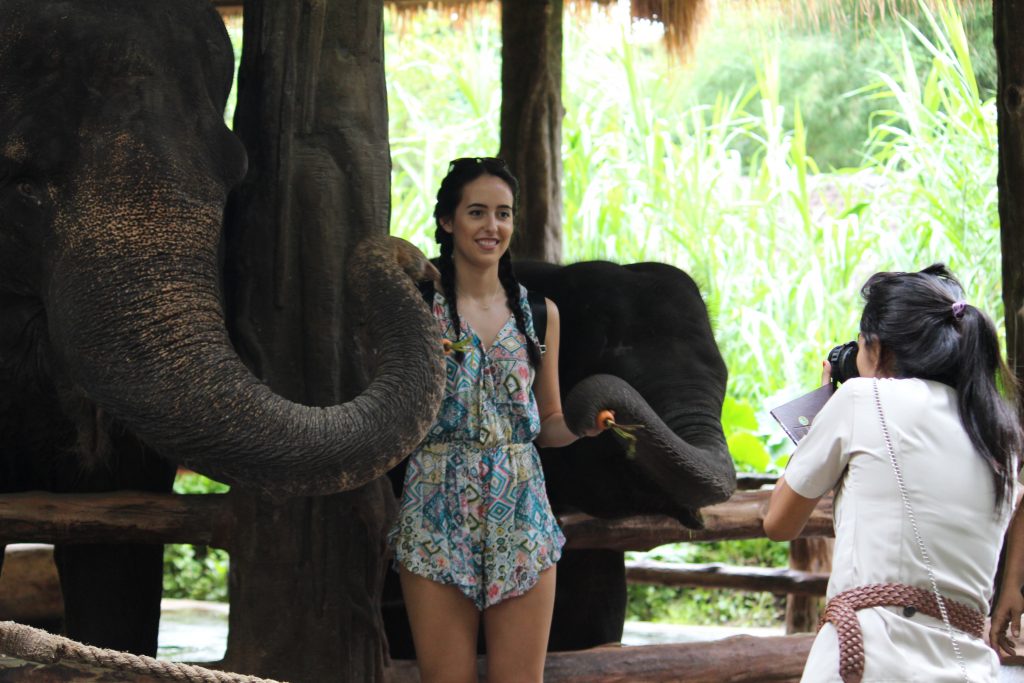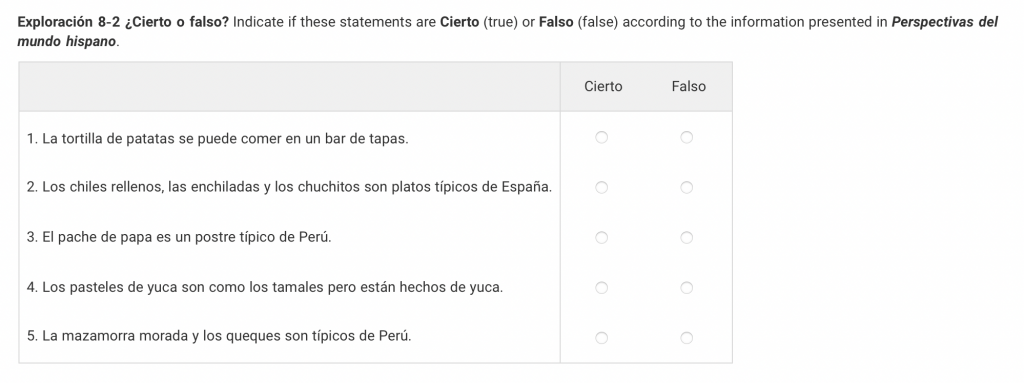Exploring Culture
There were many practices in SPAN 102 that helped me gain more cultural perspective. For example, in our discussion boards we reviewed and discussed the Health Care System of Spain and compared it to that of the United States. We also learned about the importance of family in Spanish culture, national dishes of Latin America, and different gender roles that are present in Hispanic culture. Learning about these cultural differences are important to promote understanding of others. One aspect that really challenged my thinking with Spanish culture was the aspect of the father being in the position of respect and authority, while the mother is expected to be the caregiver. This was surprising me to learn, and I accepted it is a cultural difference.
Engaging in Communities
Engaging in your immediate and global community allows you to have a better understanding of others. It also fosters connection. I learned so much when I got to travel to other countries and meet people who come from completely different backgrounds and immerse myself in their culture.

Interpersonal Communication
In SPAN 102 we completed TalkAbroad assignments which involved video chatting with a Spanish speaker from another country using only Spanish. I was able to chat with a woman from El Salvador and one from Guatemala. We also completed discussion board assignments where we typed to our classmates in Spanish.
These interpersonal communication activities were very helpful in my Spanish speaking journey. I was nervous for the TalkAbroad assignments, it was a little out of my comfort zone to talk to a stranger in a language that I am still learning. However, both of them went really well and had great conversation that I felt really improved my ability to communicate verbally in Spanish. The discussion boards were helpful as well, because I got to talk to my classmates just like I would regularly, but in Spanish. If I were to do a TalkAbroad again, I would definitely prepare more questions for the person I’m speaking to so I am able to engage more with them.
Presentational Speaking
In our LingroLearning activities, we completed audio recordings on various topics in Spanish. In one particular assignment, we recorded ourselves pronouncing the Spanish alphabet, and words that started with those letters.
This was especially beneficial because rather than writing or reading the words, I was able to practice pronunciation. I was not able to record it one take, due to some errors I made I had to redo the recording a couple of times. However, the more I did it, the more comfortable I felt. I think I just needed to slow down more rather than trying to make it flow, which is something to remember for next time.
Presentational Writing
We did several compositions throughout the course in which we had to research different concepts in Spanish and report our findings in Spanish. For example we chose a region and did research on what makes people happy and enjoy well-being in that area.
Researching in Spanish exposed me to a lot of vocabulary that I was not familiar with. However, I improved with my Spanish researching ability throughout the semester. I enjoyed picking particular Spanish speaking regions and learning more about their culture, which made the assignments a lot easier. I think overall, I could improve with making my sentences flow together more rather than sounding like a bulleted list. I am proud of my submissions of these assignments.

Interpretive Listening
There were several interpretive listening activities we completed during the semester in our LingroLearning course. We listened to various recordings, and we would have to answer questions based on what we heard. For example, we listened to a recording of a doctor speaking to a patient, and then had to answer whether certain verbs they used were in the presente del Indicativo or presente progresivo.
I think the interpretive listening activities were a little more challenging, simply because the Spanish speakers speak fast and I would have to replay the recordings to really comprehend what they were saying. Sometimes they would use words that I was not familiar with, which required me to just use context clues to interpret it. It was surprising to me how much I improved in my listening comprehension throughout the course. I feel as if I can follow the audio even if they’re speaking quickly.
Interpretive Reading
Many of our assignments, tests and quizzes included interpretive reading. Throughout LingroLearning, we had activities that required us to read descriptions and then figure out if they were true or false, conjugate the verbs based on the correct subject, match statements with the appropriate category, etc.
I think interpretive reading was the least challenging for me, mostly because I got the most exposure to it throughout the course. One thing that stuck out as surprising for me was that there are a lot of cognates out there with very similar spelling and meaning. Cognates made it easier to interpret what I read. From my example below, I was able to learn about various popular foods in hispanic culture. I found that I have really improved with each interpretive reading assignment.
